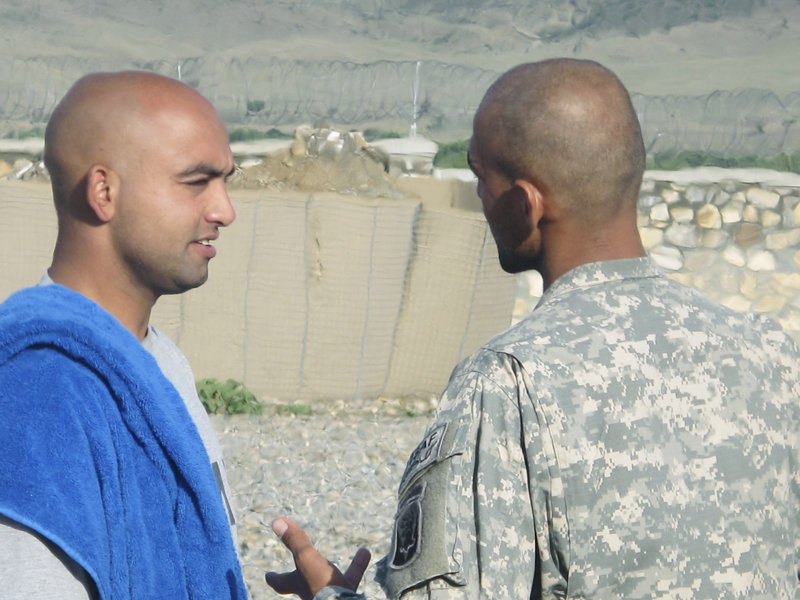Originally published June 15, 2010
As he walked through downtown Chamkani during the weekend with the rest of the Maine Army National Guard’s Bravo Company, 3rd Battalion, 172nd Infantry, Pfc. Hamayon Ahadi of Portland heard the same question over and over.
“You!” called out the locals on the sidewalks, pointing directly at Ahadi. “Afghan?”
As a matter of fact, yes.
Ahadi was born in 1984 in Kabul. When he was 2, his parents, both Afghans, got the necessary sponsorship through his mother’s family to move to the United States.
They settled first in Saco and later in Biddeford.
Ahadi, now 26, thought about joining the Marines when he was 17.
But he didn’t — in part because he knew he might be deployed to Afghanistan and couldn’t fathom getting to know his homeland through the scope of a telescopic rifle.
Instead, he graduated from Biddeford High School and went to work first as a reserve police officer in Kennebunkport and then as a mechanic for Berlin City Toyota in Portland.
Then, in the spring of 2009, seven years older and a lot wiser about “the magnitude of the war” in Afghanistan, Ahadi decided to join the Maine Army National Guard.
Upon hearing that Bravo Company was preparing to deploy to Afghanistan, he specifically asked to join the infantry unit — and in doing so gave up a $30,000 Army bonus that awaited him had he specialized as a mechanic.
“I knew I wanted to be in the infantry,” Ahadi said. “I didn’t see the sense of being in the military and not fighting.”
His language skills — he speaks Farsi and Dari and understands Pashtu — have come in handy on missions dealing with Afghans, Ahadi said.
Walking through sometimes less-than-friendly areas (downtown Chamkani on Saturday, for example), does he ever feel a conflict between his uniform and his heritage?
“Never,” he said.
Motioning around the chow hall at Combat Outpost Dand wa Patan, he added with a smile, “These are my guys. These are my people right here.”
SOME AFGHANS say the United States should get out of their country sooner rather than later.
Neaz Mohammed Khalil, sub-governor of Afghanistan’s Dand wa Patan District, is definitely not one of them.
“These soldiers have brought security to the villages in our area,” Khalil said through an interpreter during a brief interview after Monday’s “shura,” a meeting of village elders.
“We have projects, we have a good business here, and we have good security in this area,” he said.
Kahlil said the simple truth is that the Taliban and affiliated insurgent groups are stronger than the regional Afghan Border Police, national Afghan Uniform Police and other indigenous security forces in the Dand wa Patan District of Patkya Province, where Bravo Company is based.
“If the Americans are not here, the Taliban will come here,” he said. “We hope that U.S. troops stay for a long time. We need them in Afghanistan.”
ONE UNMISTAKEABLE sound during Monday’s shura was that of tribal elders’ cell phones going off occasionally.
According to the NATO-led International Security Assistance Force, Afghanistan had but one mobile phone company when the Taliban last ruled the country, in late 2001.
Today, it reports, four such companies serve 6.5 million customers.
In other words, they can hear us now.
Send questions/comments to the editors.




Success. Please wait for the page to reload. If the page does not reload within 5 seconds, please refresh the page.
Enter your email and password to access comments.
Hi, to comment on stories you must . This profile is in addition to your subscription and website login.
Already have a commenting profile? .
Invalid username/password.
Please check your email to confirm and complete your registration.
Only subscribers are eligible to post comments. Please subscribe or login first for digital access. Here’s why.
Use the form below to reset your password. When you've submitted your account email, we will send an email with a reset code.